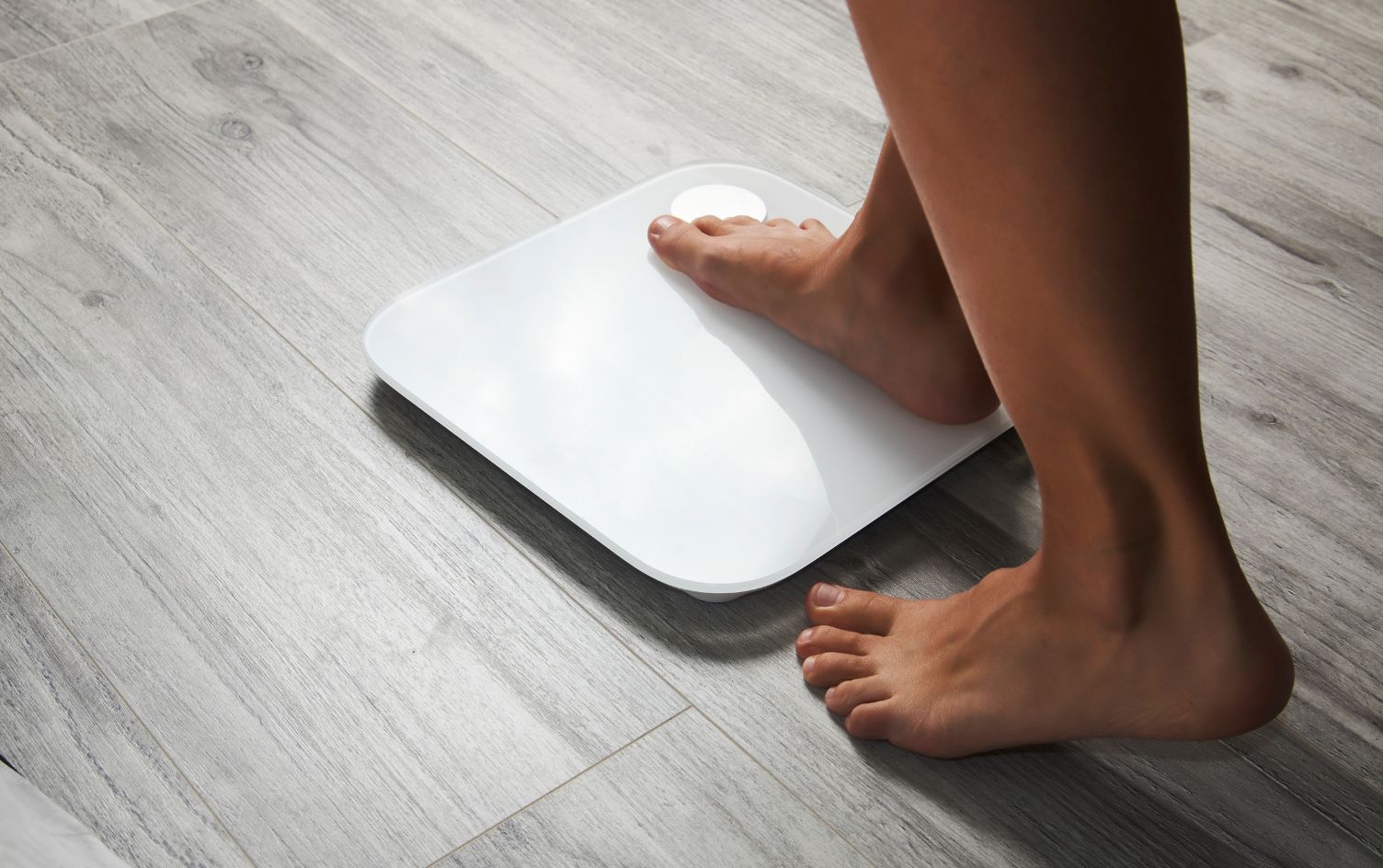We have goals galore: Read more of this … Do more of that … Go to yoga once a week … Be healthier … Lose weight … The list goes on.
A 2008 Gallup poll found that roughly 59% of Americans want to lose weight — a figure that’s unchanged since 2001. However, Americans actually weigh an average of six pounds more today than they did seven years ago. We’re not making progress with weight loss or even maintaining.
Yet, it makes sense. We’ve all been there, finding ourselves indulging in burgers instead of salad at lunch or opting for a Netflix binge instead of working out — even though we know this choice moves us farther, not closer, from our weight-loss goals. A 2014 American Medical Association article by behavioral researchers explains that this happens to most people. It’s normal: We have the best intentions when we set our goals, but often don’t follow through when the time comes to actually act on them. It boils down to this realization: We’re wired to favor immediately pleasurable activities.
INSIGHTS FROM ECONOMICS
While it might seem like there’s no rhyme or reason to these thought patterns, there’s actually a branch of economics called behavioral economics that uses psychological experiments to study why humans make seemingly perplexing decisions like these. It turns out that there’s actually a method to the madness.
When it comes to issues like weight loss or quitting smoking, this branch of economics helps us understand why we do things and has developed ways to manage our actions to be successful. In Behavioral Economics and Public Health, Yale researchers explain that we tend to think in the present. They cited a study in which people had to choose between junk food and fruit for a snack for the week ahead — and most people chose fruit. However, when the snacks were actually delivered, the subjects were asked again to choose which snack they wanted right then and there, and only 20% of them stuck with fruit. They could be virtuous in theory, but when reality hit, those good intentions didn’t stick.
This is where commitment devices come in. Just because we tend to favor the present doesn’t mean all is lost when it comes to reaching our weight-loss goals. Behavioral economics research goes beyond understanding why we make the decisions we do and into what we can actually do about it.
HOW COMMITMENT DEVICES HELP
Essentially if you commit in advance to measurable steps to achieve certain goals, your chances of success are much greater. Commitment devices are simply a way to “pre-commit” to following through with the goals we decide on today so we’re more likely to stick with our goals when that critical decision-making moment arrives later.
They’re not really devices, but more like arrangements you make to influence future behavior. They can take the form of promises to (or even monetary bets with) friends who you don’t want to disappoint to thoughtfully planned approaches to when you buy your food. When it comes to weight loss, specifically, whether it’s about exercising more or eating healthier, behavioral economics researchers have uncovered a handful of strategies that can be used to help people stick to their goals:
PAIR WHAT YOU LOVE WITH WHAT YOU DON’T
If getting to the gym is a struggle for you, this 2013 study offers some hope: Researches got 51% of participants to go to the gym more frequently by having participants listen to “page-turner audiobooks” while exercising. The key is to pair something you find indulgent, like a TV show or podcast, with exercise and, more often than not, the desire to indulge will get you to the gym.
LOCK TEMPTATIONS AWAY
In his book “Misbehaving: The Making of Behavioral Economics,” Richard Thaler brings up the kitchen safe, which is a container a person can lock for a certain length of time. It can be used to lock away whatever tempts us — and keep it out of reach. If having one too many treats is your struggle, literally lock them away when you’ve decided to quit eating so that, a few minutes later when temptation strikes again, you won’t be able to indulge.
MAKE A PROMISE TO AN EXERCISE BUDDY
Promises are a very basic form of commitment, and by not wanting to disappoint the friend we’ve made gym plans with, we end up going to the gym more.
GET YOUR GROCERIES ONLINE
This 2009 study found that people make better decisions about the food they buy (i.e., buying more “should” items like vegetables and less “want” items like ice cream and other un-healthy treats) when they order their groceries online. Interestingly, this only seems to work if the delivery occurs far enough in the future. The study found scheduling next-day delivery didn’t help, but scheduling it at least two days out did, so keep that in mind while you click.
MAKE CHOICES NOW THAT LOCK YOU INTO THE FUTURE
A 2010 Yale study calls these “ad hoc” behaviors, but all it means is doing things now to deter yourself from bailing on your goals in the future. The authors recommend little things like buying junk food in smaller packages so you’ll have less to eat at home, brushing your teeth earlier in the night to keep you from snacking later (yuck, toothpaste taste) and buying long-term gym memberships over day passes to remove money from the day-to-day equation.




